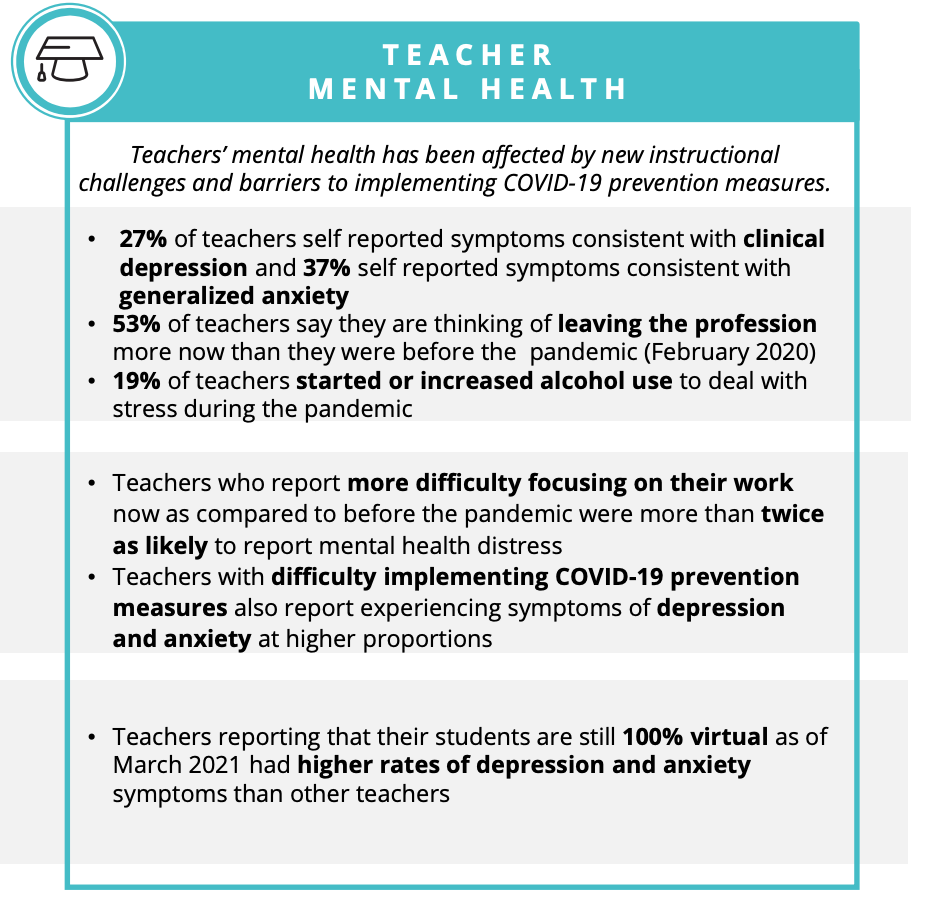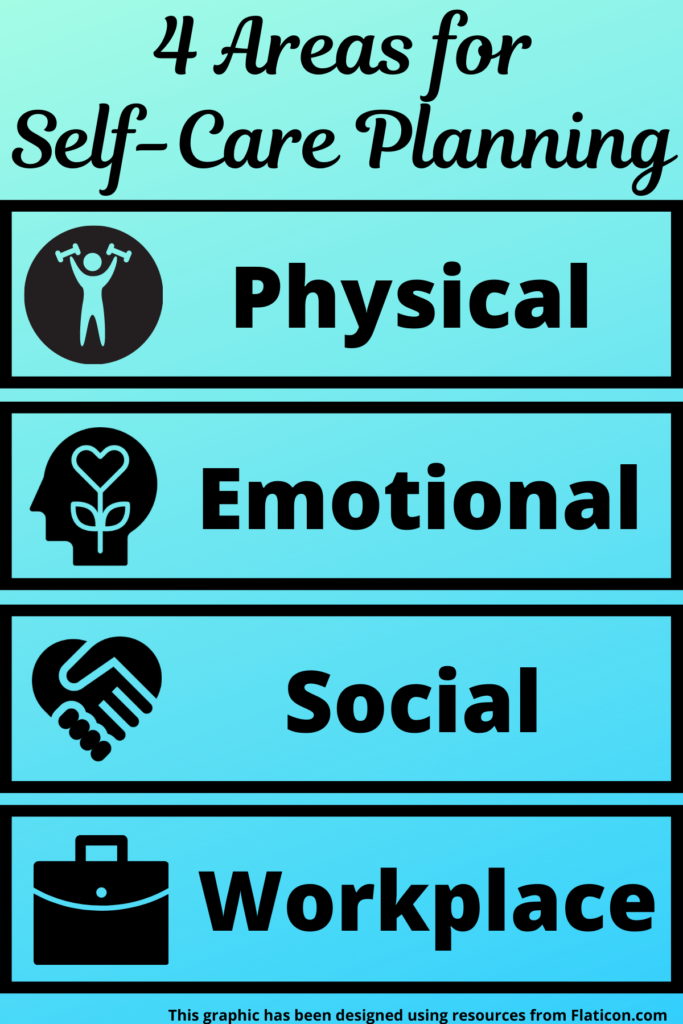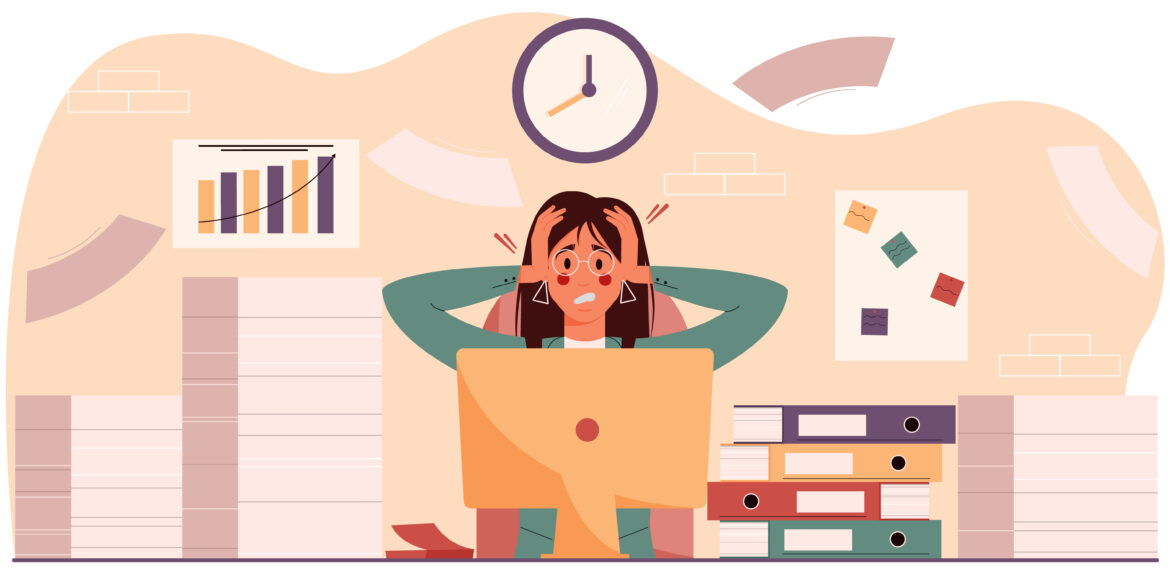
Okay. So, how are you doing, really? Are you afraid to ask yourself this question because you don’t want to face the answer? I’ve been there. I led an amazing faculty and staff through the pandemic. I worried for the physical, social, and emotional well-being of the members of my school community every single day. But I didn’t spend a lot of time assessing my own well-being or planning for self-care. Is this how you operate? This is not a “humble brag.” After a lot of self-reflection, and with hindsight being 20/20, I share this with a great deal of sadness as it led to my own professional burnout.
Our field has changed dramatically over the past year and a half. This change has affected everyone: students, faculty, staff, and families. Stress, anxiety, and frustration are heightened on our campuses as we’ve had to manage an unimaginable amount of change, continuously redefined expectations, and a lot of uncertainty about the future. Throw vastly polarized viewpoints on hot-button issues and struggles with work-life balance into the mix, and things get even more challenging. None of this is news to you, I know.
What the Research Says
A recent article from Psychology Today, Burnout: An Emotional and Psychological Warfare, points out that burnout is growing, especially “for people looking after children” and “ those who are continually stressed and overburdened with workload.” More specifically, a research report from the 2021 State of the U. S. Teacher Survey through the RAND Corporation shows that teachers are likely to leave the profession at a higher rate than ever before, approximately 25 percent. It also mentions that teachers are experiencing work-related stress and signs of depression at greater rates than the general population.

According to Educators Ready for Fall, But a Teacher Shortage Looms, a recent article published by the National Education Association (NEA), their 2021 survey data reveals that 32 percent of teachers surveyed were planning to leave the profession. Additionally, the CDC Foundation published a report in May of 2021 (Mental Health Impact of the COVID-19 Pandemic on Teachers and Parents of K-12 Students), and their data shows that 27 percent of teachers reported symptoms of depression, and 37 percent reported symptoms of anxiety. Not only that, but this report shows that a whopping 53 percent of teachers who participated in their study are thinking of leaving the profession. That’s a big leap from both NEA’s and the RAND Corporations reported numbers. What does this mean? It could be an indication that a large number of educators are stressed and feeling the effects deeply.
Signs of Burnout
In an informative article posted by the American University School of Education’s online magazine (Addressing Teacher Burnout: Causes, Symptoms, and Strategies), they share that identifying symptoms of constant fatigue, self-doubt, withdrawal, and loss of inspiration early on can help prevent full-fledged burnout effectively. Psychology Today adds a lack of concentration and decline in work performance to this list of symptoms. The Mayo Clinic provides a great set of questions to self-evaluate job burnout in their article Job Burnout: How to Spot It and Take Action. These include additional symptoms such as changes in sleep habits, disillusionment, irritability, and cynicism, among others. They also provide potential causes, risk factors, consequences of job burnout, and information for handling it.
Managing Job Burnout

Self-Care and Mindfulness
Self-care and mindfulness can go a long way in preventing burnout. It’s much harder to “undo” it, though. Burnout is compared to compassion fatigue in a great article from Behavioral Health News entitled Managing Burnout and Compassion Fatigue Through Self-Care Strategies by Michael Selbst, Ph.D., BCBA-D and Ashley Zultanky, PsyD. The authors provide four crucial areas for self-care planning: physical, social, emotional, and workplace. I would encourage everyone to check out the examples they give. They also reiterate that eating, exercise, socialization, sleep, and hobbies are all important parts of self-care. The article cites that healthcare workers and educators are at higher risk for burnout and compassion fatigue due to the caregiving and helping nature of their work.

Catherine Hannay, founder of MindfulTeachers.org, shares three fantastic thoughts about self-care on her Self-Care Resources page (which I would highly recommend checking out):
- “Self-care is only part of the equation. How we are treated by institutions and other individuals plays a big part in our wellness.”
- “Self-care involves figuring out what aspects of our work and schedules we have control over and making choices about how to spend our available time and energy.”
- “Self-care is far from self-indulgent, especially among those of us who are committed to serving others. It isn’t about being selfish or shirking our responsibilities. It’s about maintaining our sanity and energy.”
I couldn’t agree with her more. On the MindfulTeachers resources page, there are many excellent links to articles and videos on self-compassion, mind-body health, self-care, coping with stress, and more.

In addition to the strategies mentioned above, the Mayo Clinic’s article suggests having solution-focused discussions with your supervisor, participating in stress-relieving activities (such as yoga), and seeking out support from peers, loved ones, or a professional.
We are a few weeks into the school year, and have you taken the time to stop and self-assess? Yes, cue the eye rolls. “You know we’re educators, right? Who has time for that?” In this profession, we are used to pushing through on autopilot to get things done for the benefit of our students, schools, and districts. But, now more than ever before, it is important to make the time to check in with ourselves, practice self-care, and seek support if we need it.
If you are struggling, you are not alone. If you’re not, check in on your colleagues, peers, and staff you supervise who may need your support and encouragement. A small gesture like a handwritten note, a coffee, some chocolate (because who doesn’t need chocolate?), or a simple question like “How are you doing?” or “How can I help?” can go a long way. What can we do to support ourselves, and what can we do to support each other in maintaining boundaries and practicing self-care to prevent burnout?

